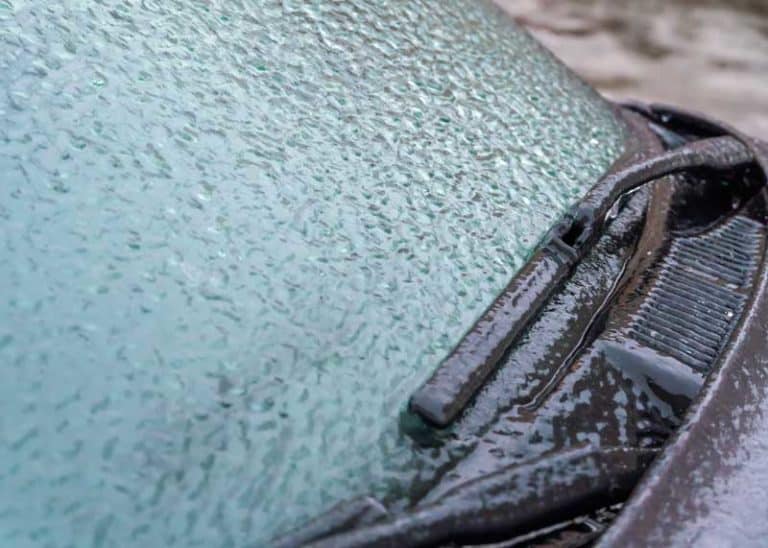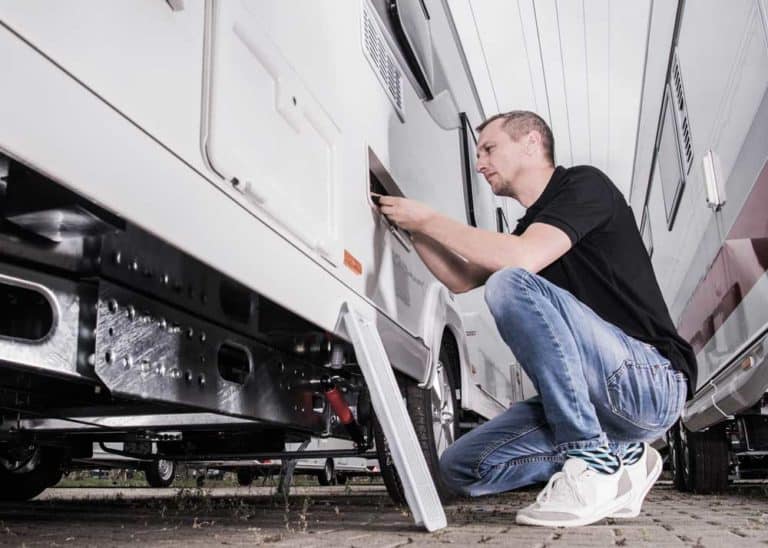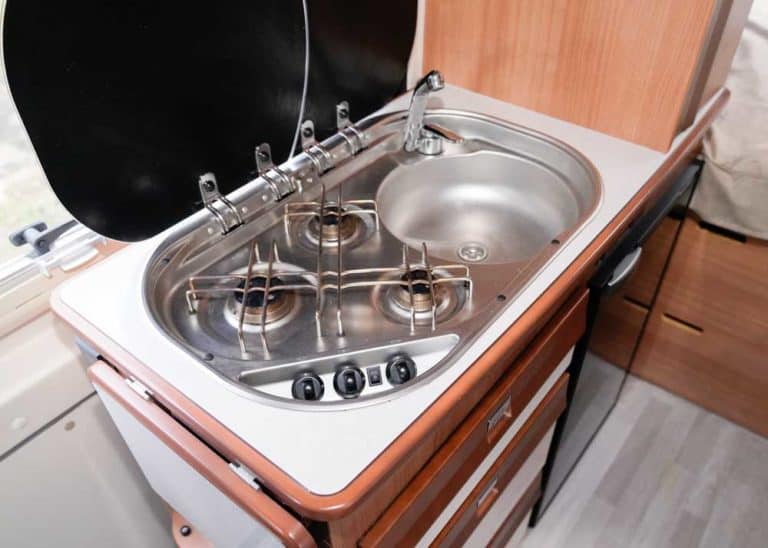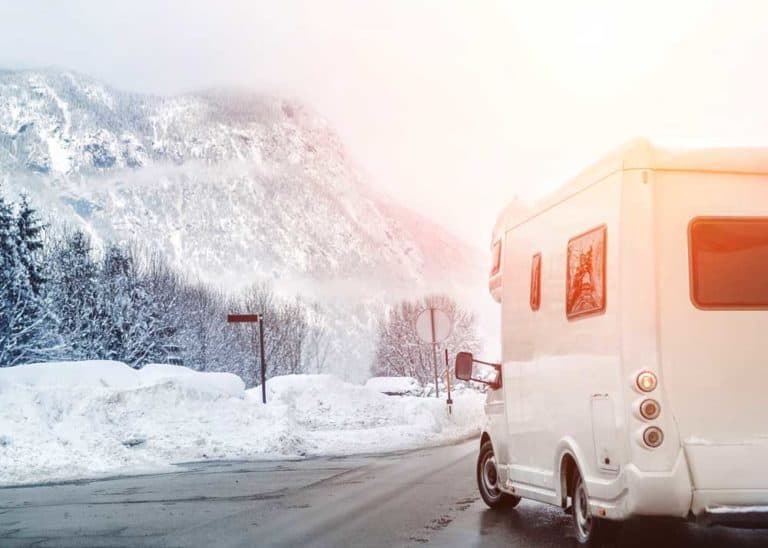How to Heat an RV Without Propane: 8 Toasty Tips
Sometimes we go camping when it’s cold outside. What’s the best way to heat a camper during colder months? While your RV’s propane furnace is a great heating method, what are good heating alternatives?
Here’s how to heat an RV without propane: Use electric heaters (space, infrared, oil-filled), wood, or kerosene heaters. Plus you can add extra insulation, skirting around the RV, and bring extra socks and blankets.

Propane may not always be available, so the more options for keeping warm you have, the better. Here are some ways to effectively heat an RV, even without propane.
How to Heat a Camper Without Propane: Electricity
If you’re at a site with electricity, this is an effective way to heat your RV. Electric space heaters are usually inexpensive and can effectively heat one area of the RV at a time rather than the entire vehicle.
Space heaters come in several forms. Some of the most popular options for heating an RV with electricity are ceramic space heaters, oil heaters, and infrared heaters.
1. Ceramic Space Heaters
This is the typical electric space heater you could easily find at a hardware store. They come in a variety of sizes, depending on your camper heating needs.
There are two main types of ceramic heaters: convection ceramic heaters, which use a fan to disperse the warm air throughout the room, and radiant ceramic heaters, which radiate heat into the objects in the room rather than the air.
Convection heaters are best if you plan to move the unit between spaces. Radiant heaters are best if you want prolonged, more enduring heat in one part of your camper.
2. Oil Heaters
Another good way to heat your RV with electricity is with the use of an oil heater. These are often a little larger and look like miniature radiators.
These are a good choice to heat your camper without propane if you’re looking for something quiet and a bit more efficient in energy usage, as there is no fan. And since most models are controlled by a thermostat, they will turn off automatically once the set temperature is reached.
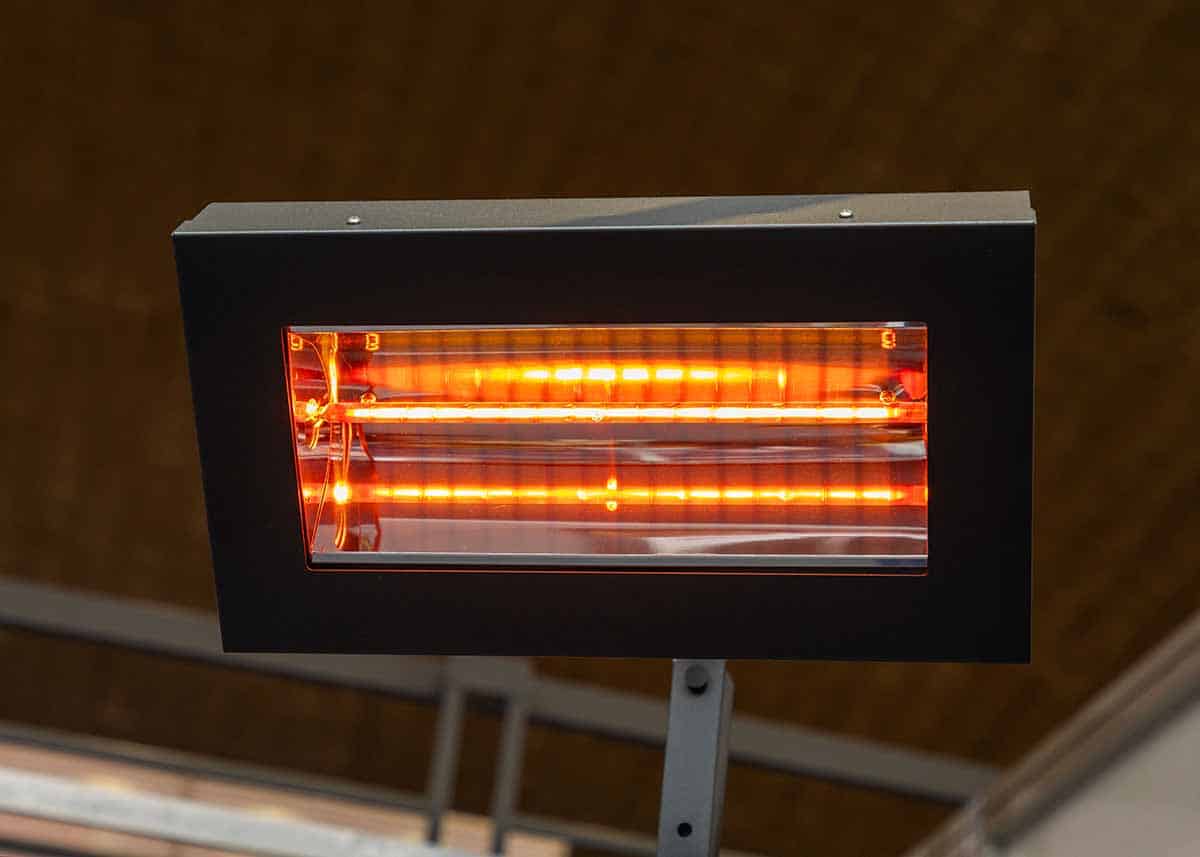
3. Infrared Heaters
Another option to consider when heating your camper without propane is an electric infrared heater. This type of heater is affordable as well as quiet. Like the radiant ceramic heaters, it heats the objects in the room rather than the air.
However, it has a limited heating range compared to other electric RV heating options and gives off more light than other heaters.
Safety Precautions While Using Space Heaters
No matter what kind of electric heat source for your camper you choose, safety comes first.
Most deadly RV fires begin in the living areas of the camper, and in a recent NFPA study, 26% of those fires were caused by a space heater of some kind.
- To prevent fires, keep your space heater at least 3 feet from anything that could catch fire, such as clothes, bedding, and curtains.
- Never lay towels or clothes across your space heater to dry, and make sure children and pets avoid exposed heating coils. You can learn more about space heater safety here.
Safe Camping Guide: 11 Best Heaters for Tents
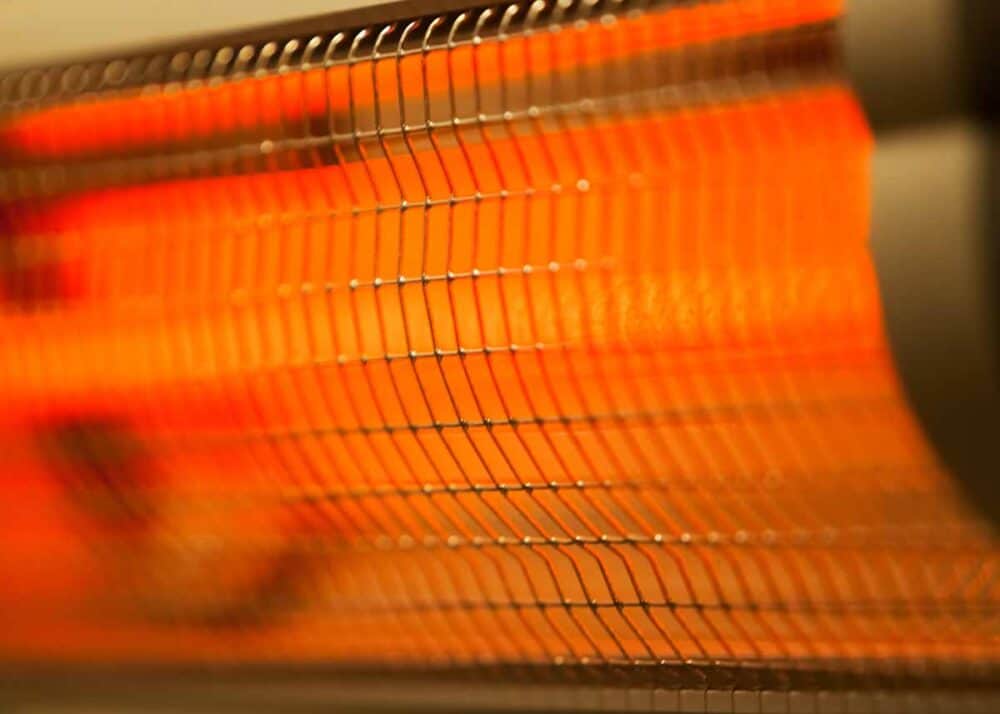
Heat a Camper Without Propane or Electricity
Some campsites charge an extra fee to use an electric heater. And other sites don’t have electricity available at all.
If you want to heat your RV without propane or electricity, here are some alternative methods of heating your camper.
Note: Make sure that any setup of the following is done safely, following government guidelines. If installed incorrectly, both methods have the potential to cause significant harm or even death.
4. Kerosene, Gas, or Diesel Heater
While some campers come with diesel or gas heaters already installed, you can also set one up yourself. According to some RVing veterans, the main advantage of a diesel or gas heater for your RV is the dry heat.
Propane heaters introduce extra moisture into the RV and increase the chance of mold, but gas or diesel-based heaters do not. And I’ve read that they’re efficient: a gas or diesel heater can keep Class C motorhomes toasty for 24 hours using only one gallon of fuel.
5. Wood Stove
Another increasingly popular method to heat an RV without propane is to install a wood stove in your camper. This heat source certainly adds a cozy charm to your mobile home, and sometimes an extra cooking surface.
However, wood stoves can be complicated to install. They are also a bit messier than other non-electric camper heaters because of the ash disposal involved. You’ll also need a place to store the wood, so be aware of your storage limitations before choosing this method.
Here’s more about choosing a wood stove for your RV.
Keeping Heat in Your Camper
One of the best ways to reduce heating costs is to make sure your RV is as energy-efficient as possible.
Here are three more tips to ensure the best use of your energy budget year-round.
6. Insulation
- Check the insulation on your windows and doors first, as these places tend to get drafty if not sealed properly.
- One low-cost solution is a door snake made of foam or fabric and other materials like dry rice.
- Make sure the caulking and weather stripping are in good condition. Reseal or replace them if they aren’t.
- Swapping your doors and windows with more efficient versions will also help keep more warm air in and more cold air out.
- You can also install improvements to the insulation in your RVs walls such as foam panels, spray foam, or fiberglass insulation.
7. RV Skirt
If you’re staying in one location for a while, installing an RV skirt is a good way to prevent drafts from blowing in under your camper.
Depending on your needs and budget, you can either make an RV skirt from materials such as foamboard or plywood or buy one customized for your camper. And as a bonus, it will help you keep cool in the summer, too.
This is a great step, especially if you’re winterizing a camper to live in.
8. Warm Clothes, Décor, and Bedding
It’s never a bad idea to dress in plenty of layers while living in your camper over the winter.
In addition to throwing on an extra sweater and a hat, adding fluffy rugs to your floor, putting a soft down comforter and some cozy flannel sheets on your bed, and sleeping with a hot water bottle can also help keep you warm, especially overnight.
If electricity is available, electric blankets are also a possible solution.
Learn more about propane tank capacity so you don’t run out on a cold day.
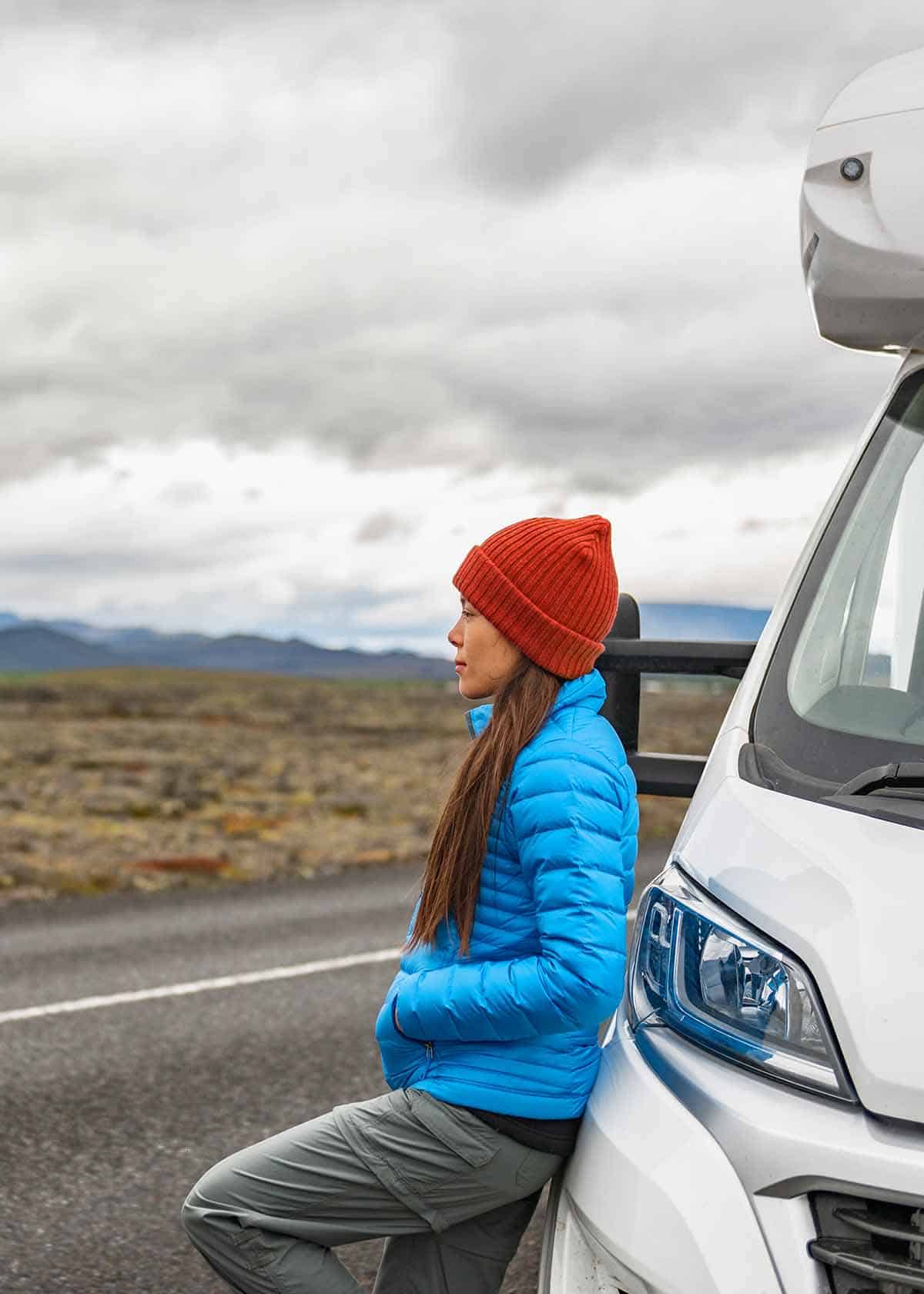
Here’s how to heat your camper without electricity.
Many Ways To Heat an RV Without Propane
If using propane to heat your RV isn’t an option for you, you have several alternatives to both propane and electricity for heating your camper during the winter.
While everyone’s needs and budget vary, it’s absolutely possible to heat your RV without propane.
What are the best ways to heat your camper that you’ve found?


